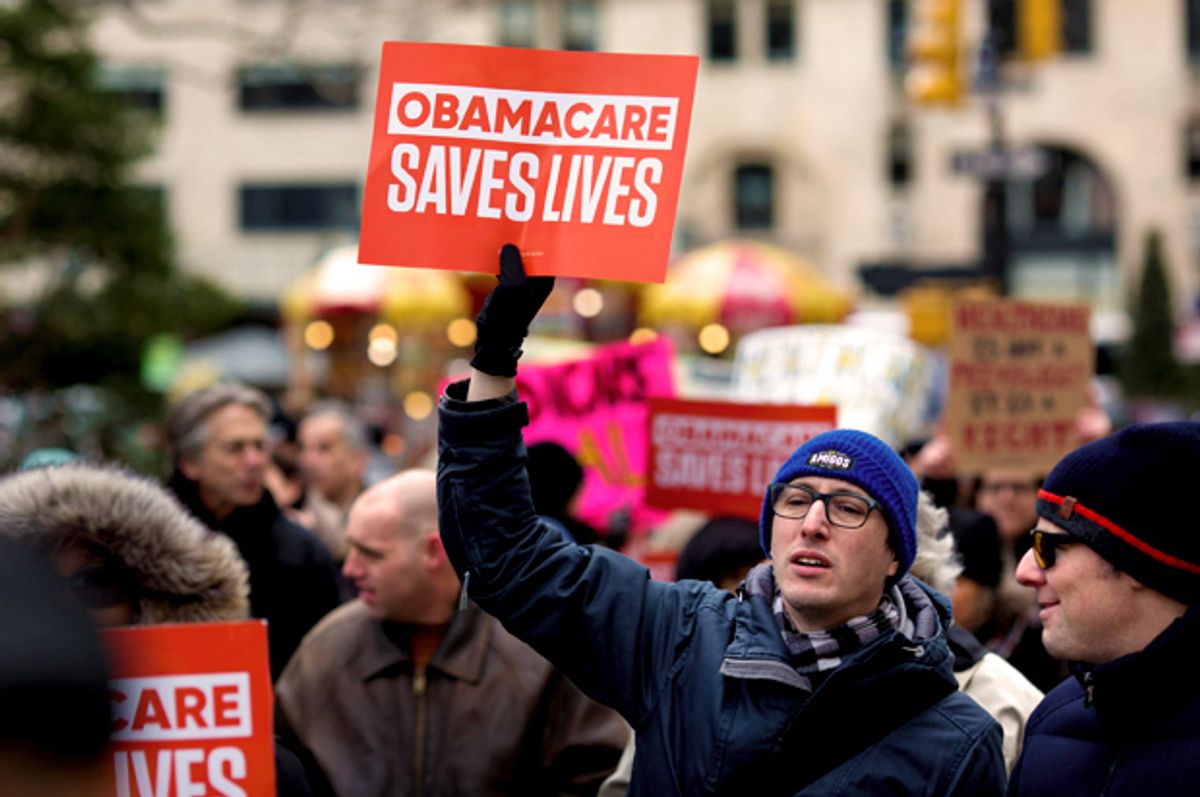A new study by the non-profit Kaiser Family Foundation reveals just how devastating the American Health Care Act will be to individuals with pre-existing conditions.
Released on Wednesday, the study focuses on the state waiver provision of the American Health Care Act, which would permit individual states to waive community rating in the individual insurance market. Prospective patients who have had a gap in their insurance coverage lasting 63 days or more within the previous year could see their premiums go up based on their health status for at least one year before being eligible for a community-rated premium that would not be impacted by pre-existing conditions.
[salon_video id="14767922"]
How many people would this impact? The Kaiser Family Institute estimates that more than a quarter of non-elderly adults have preexisting conditions that would have negatively affected their coverage prior to the passage of the Affordable Care Act. Because the American Health Care Act still requires insurers to offer coverage to all patients, people with pre-existing conditions would not be flat-out denied coverage, but it is highly probable that insurance companies would drastically increase their premiums if they are legally permitted to do so.
"The effect of a community rating waiver would depend crucially on how many people with pre-existing conditions have gaps in insurance that would leave them vulnerable to higher premiums," the report said. While the study acknowledged that "there are a variety reasons why our estimates might understate or overstate number of people with pre-existing conditions who could be subject to premium surcharges under the AHCA," it nevertheless concluded that people who go without insurance for extended periods of time would be vulnerable to being asked to pay unaffordable premiums under the new system.
"Some people with a gap will ultimately regain coverage through an employer-based plan or Medicaid, and would not be subject to premium surcharges based on their health," the study said. "However, anyone who has been uninsured for 63 days or more who tries to buy individual market insurance in a state with a community rating waiver would be subject to medical underwriting and potential premium surcharges based on their health."



Shares